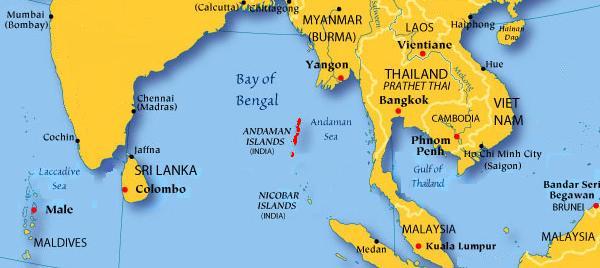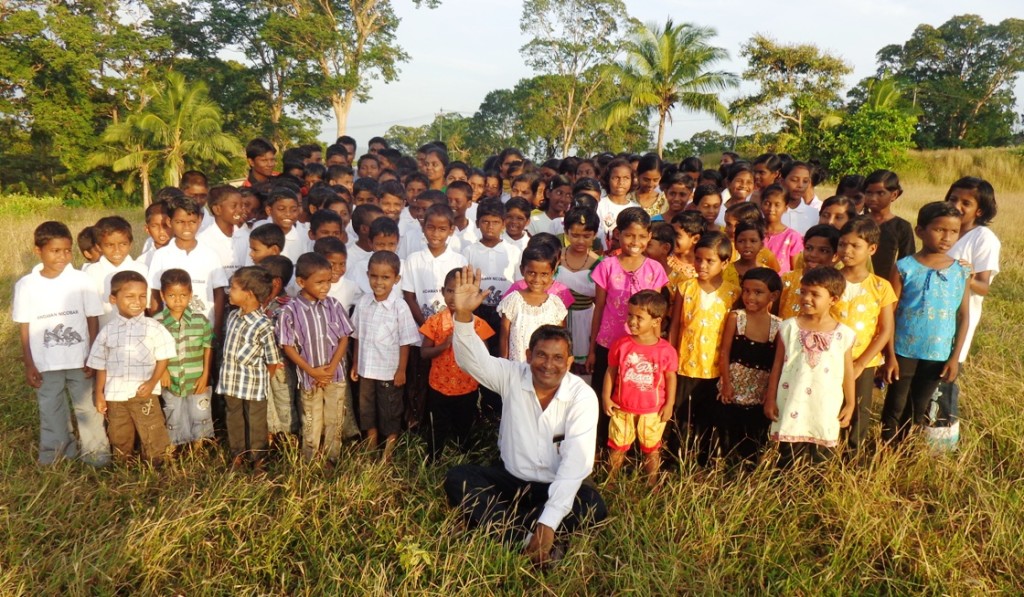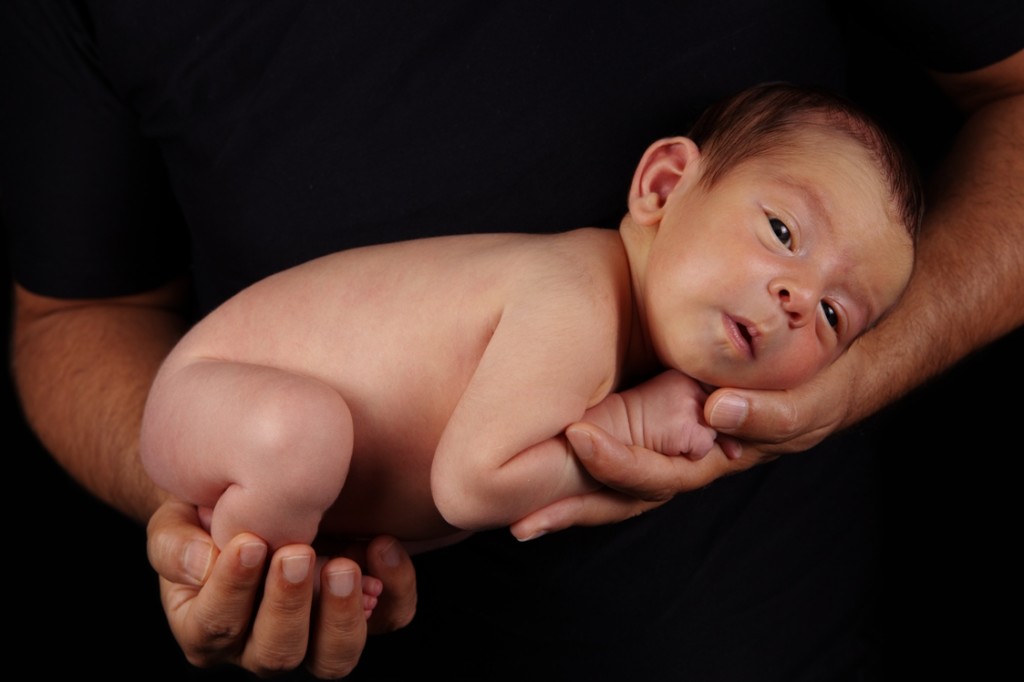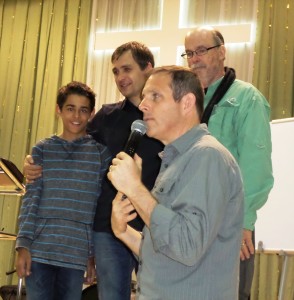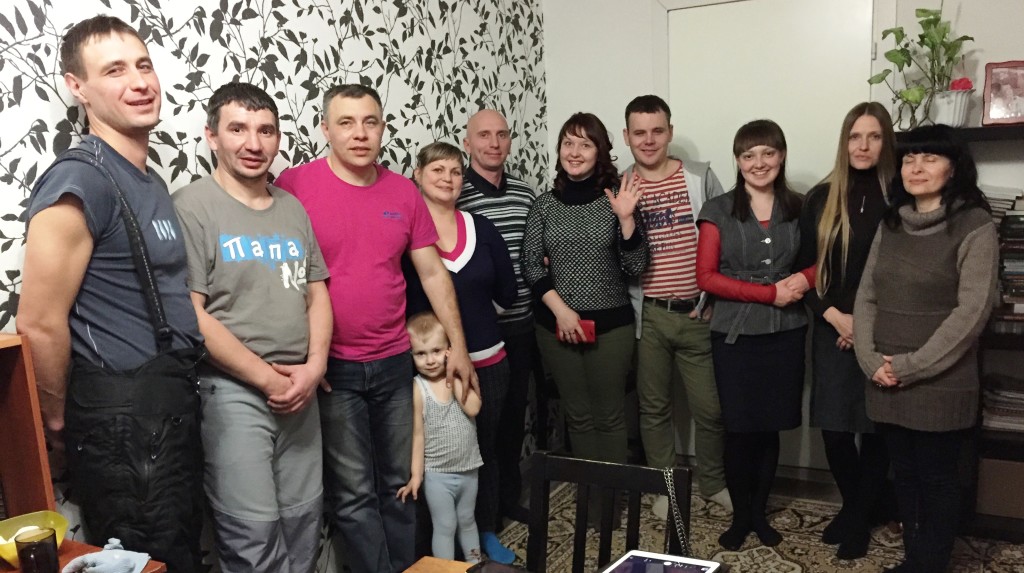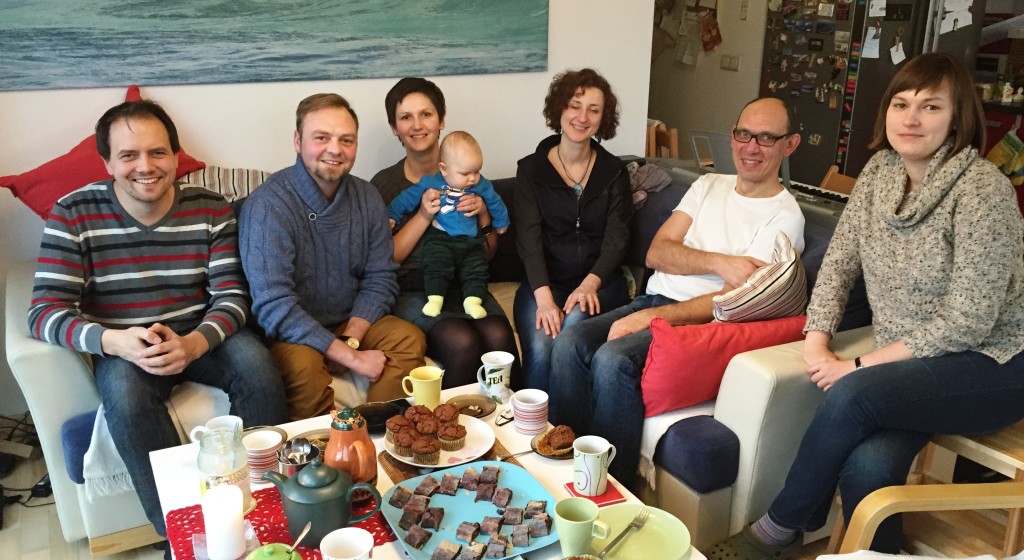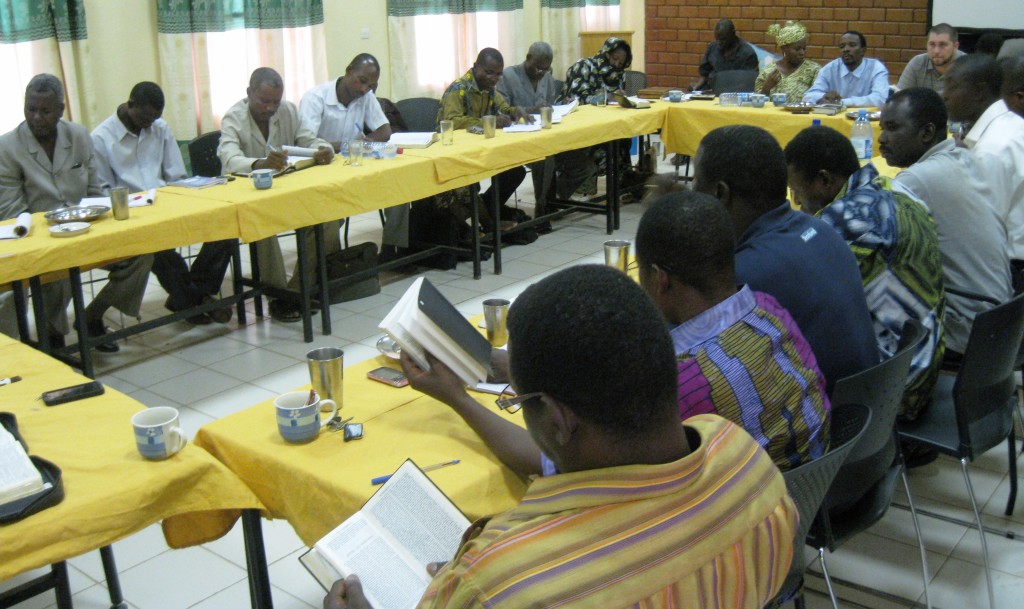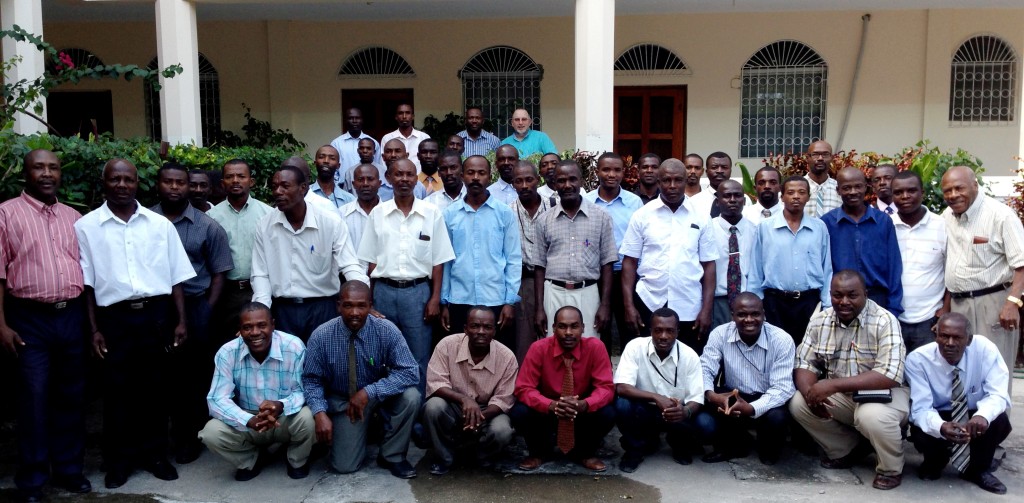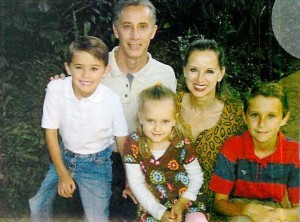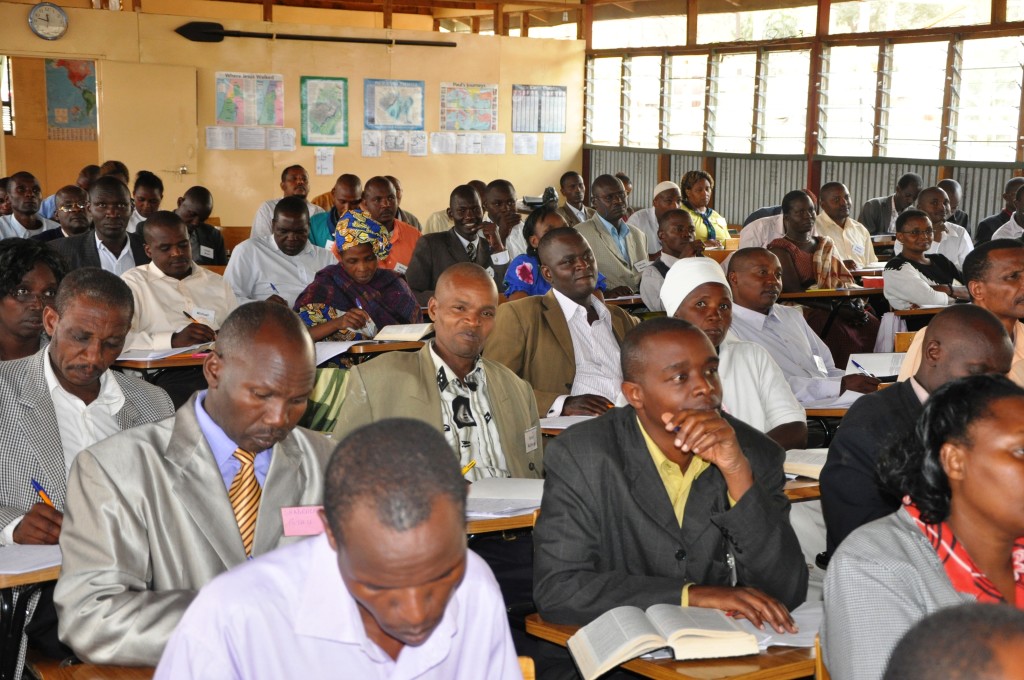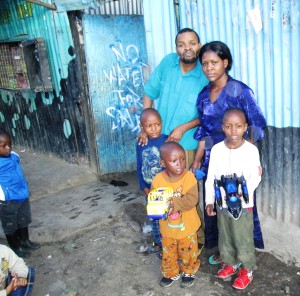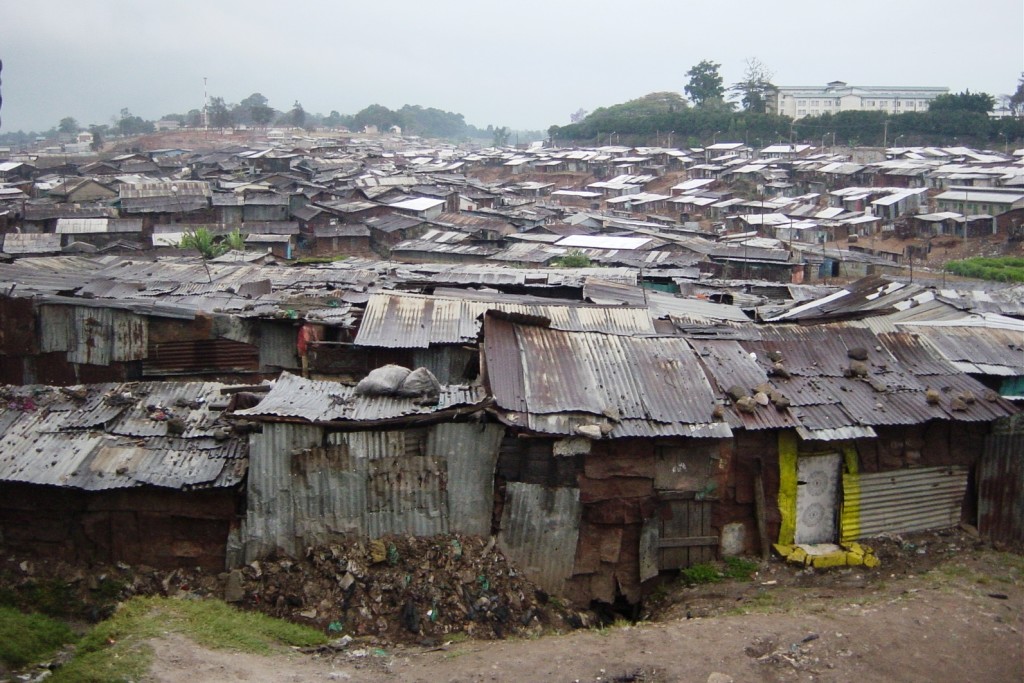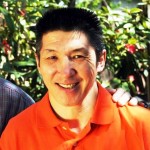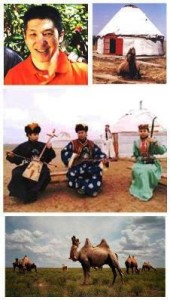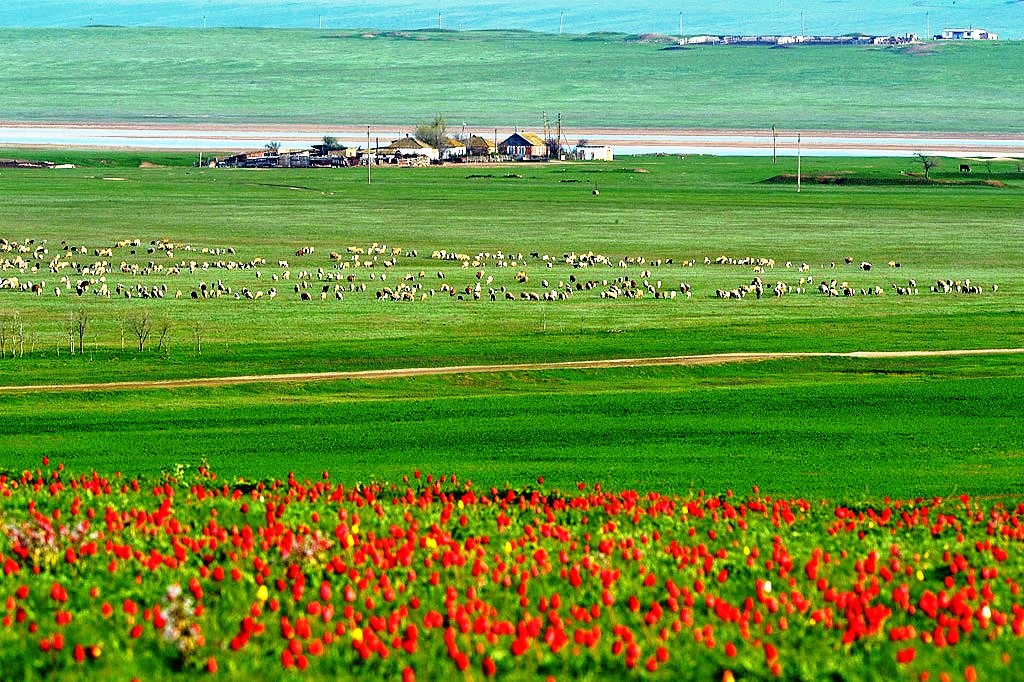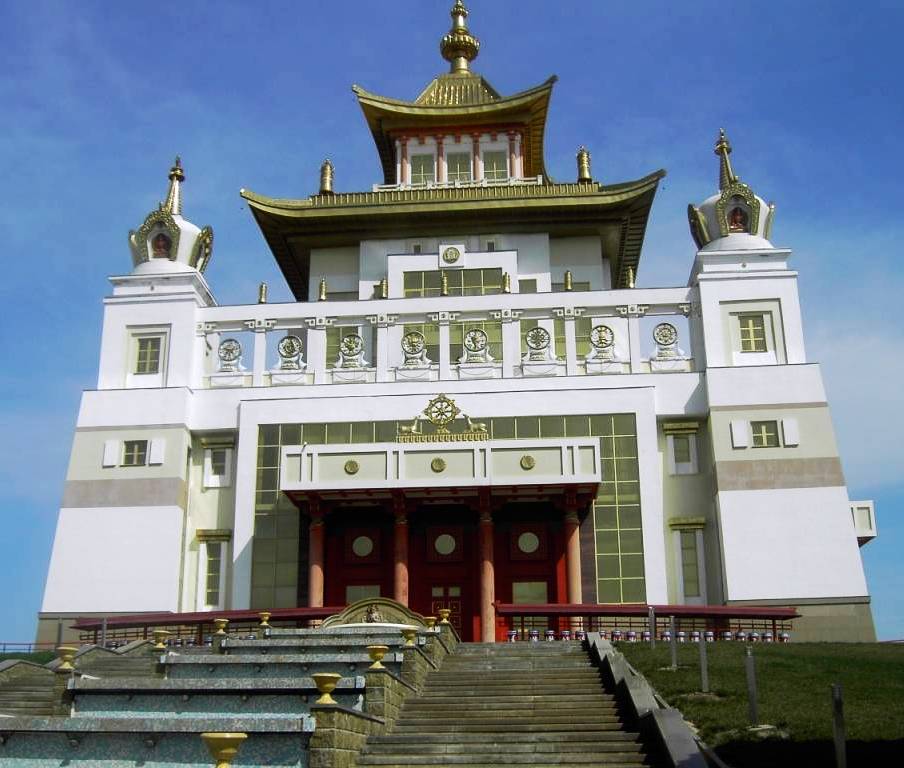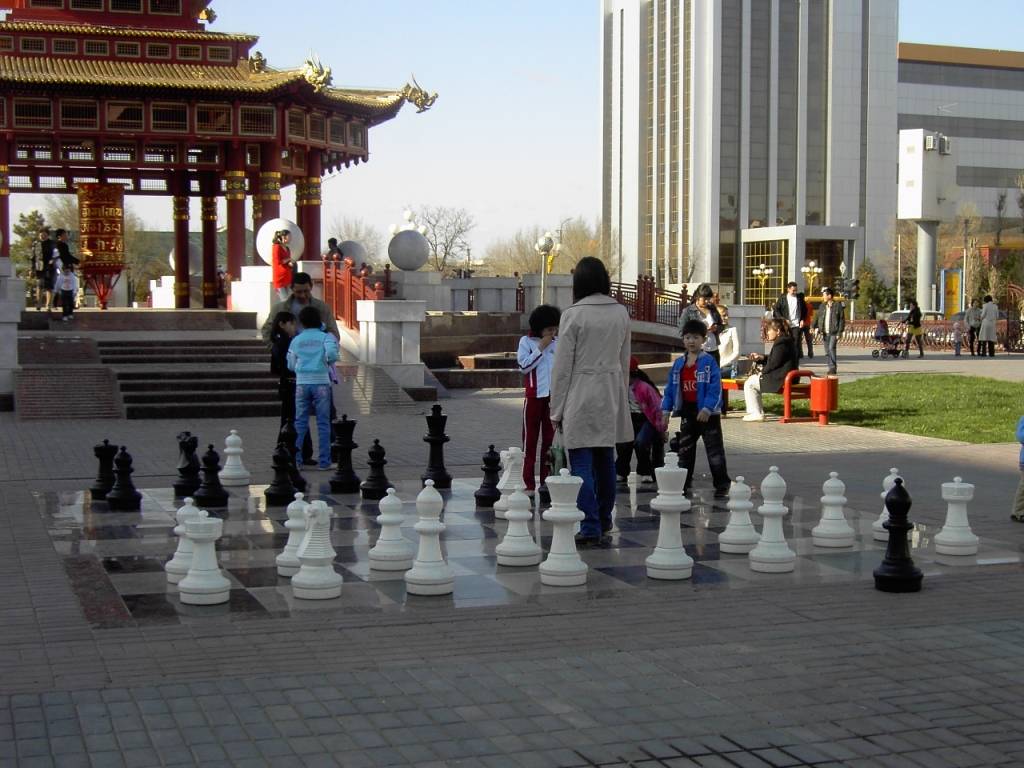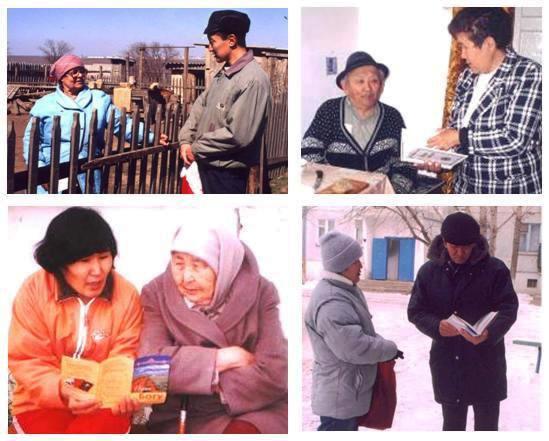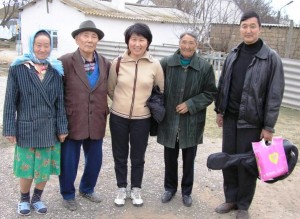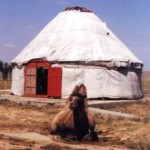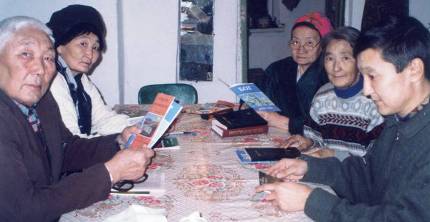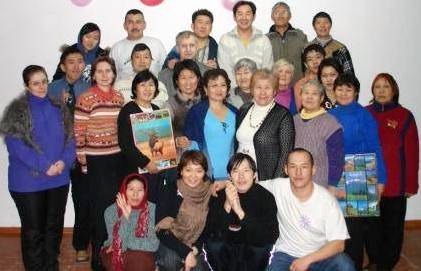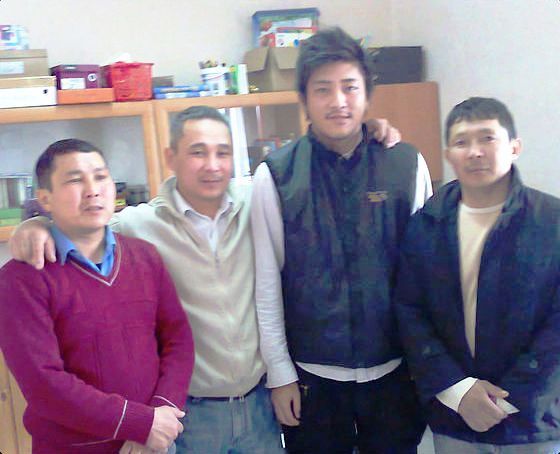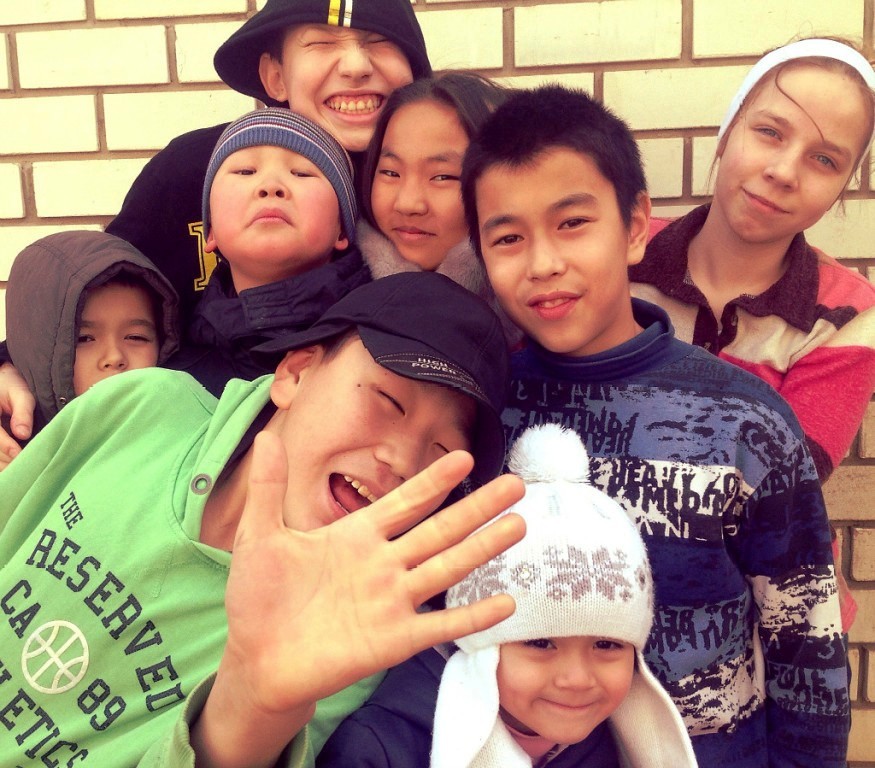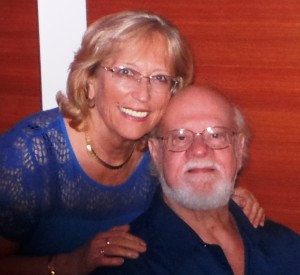by Maiwa’azi Dandaura Samu – Conflict and Security Consultant
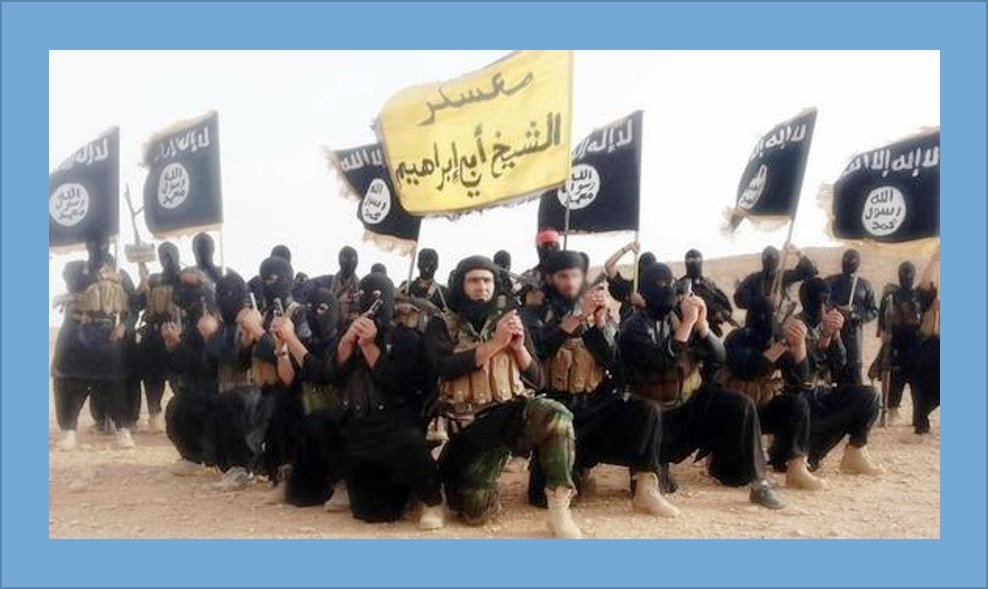
The purpose of this article is to inform and educate the Bridge partners on the emerging global trends on the cataclysmic conflict raging globally against the forces of darkness represented by Islamic extremism, fundamentalism and ethno-political-religious militancy represented by groups like Boko Haram in Nigeria, and ISIS in Iraq and Syria. This then will serve as wakeup call and also form clear direction for Christians who pray for the nations and want to be informed about the issues, that they may be more effective and organized in their intercession.
The international systems and order as we know it is being shaken from its roots by violent Islamic non-state extremist and fundamentalist actors who seek to restructure the international order, which they perceive must be redesigned and controlled by the Sharia laws of Islam. They believe the present world order operated and controlled by the USA and its EU allies polarized by their Judeo-Christian worldviews is not only sinful, but highly hypocritical and over-politicized. So they seek to de-Westernize, and de-secularize the international systems. This is intended to create a new global divine PAX ISLAMICA via “thawra al-alamiyya” (Islamic World Revolution), which will be states under political Islam. To achieve this PAX ISLAMICA, the existing state structures must be eliminated, and a new borderless world order controlled by Muslim extremists be established.
To achieve this goal, the struggle, or Jihad, must be fought by extremist and fundamentalist groups on the different continents. The extremist groups are bound by this one dream – eliminate the establishment and institute a worldwide Islamic caliphate to continue where the Ottoman Caliphs stopped their jihad.
The struggle is planned to be fought in all countries till present state borders are eliminated and the caliphate extends from coast to coast under one Caliph.
Therefore ISIS in Syria and Iraq are one nucleus meant to conquer all of the Middle East, North Africa and Israel. Boko Haram in Nigeria, Al Qaidain the Maghreb, and Al Shabab in Somalia are the African Pax (“Peace”) Islamica conquering machines. Al Qaeda and the Talibans in Pakistan and Afghanistan are meant to conquer the Far East and India; the Muslim fundamentalism on the rise in the North Caucasus to conquer Russia, the Xinjiang Islamic Fundamentalism to subdue China. In conjunction with the rising Islamic extremist attacks and anti-Semitism in Europe, America, Australia, and New Zealand, they are all working to merge the continents into one global Pax Islamica under one supreme Caliph located in the present ISIS controlled region in Iraq and Syria.
Every country is expected to have its own Pax Islamica fundamentalist eye that will do the struggle or Jihad in that nation. For the extremist fundamentalist, any Muslim that is not an extremist is equally, just like any Christian, an infidel, deserving death, or be conquered and enslaved. The vision for fundamentalist world Islamization is blamed on, driven or egged along, by variable features triggering mass migration of the unemployed, environmental damages, socioeconomic marginalization of the generally vulnerable, ethnicity, racism, systemic and structural violence and discrimination of all kinds which they claim are placed on the pathway of the vertical ladder climb of Muslims globally.
Despite their deep contempt for modernization, Judeo-Christian and Western values, in their attempt to set up their own new global Divine Pax Islamica, they use Western logistical tools and Western theories to establish their new Islamic world order. These characteristic mindsets are the realities anyone engaged in defense and deterrence aimed against the extremists, must deal with. The underlying mindset which shaped the creation of ISIS and the Boko Haram caliphates, is that there can be no global peace till there is global Islamic domination—which is— Allah’s global rule!
This conviction forms the ideological inspiration, framework and determination of groups like Boko Haram, ISIS, Al-Shabab, Al Qaida and their global affiliates and movements who seek to globalize Islam and establish a global Islamic order or Pax Islamica. Their dream is to eliminate all competing civilizations and religions so as to establish the Pax Islamica. Their type of peace is a true threat to non-Muslims referred to by Shariah as Dhimmi (people who should be discriminated and subdued).
Therefore, Political Islamic Sharia necessarily contradicts human rights. It must consequently be clearly understood that extremist Jihadists are not just mere terrorist, but politicized religious violent actors with a new challenge against the present world order, and therefore a great threat to local and international security. They want to conquer the world, and will not stop till they are either all dead or win.
Political Islam brings to the fore the picture of two civilizations in competition, or the clash of civilizations. The clash of civilization is properly the clash of cultures. It is not the culture of the West and Islam but the terrorists and other human beings irrespective of religion. It is the cultural divergence of value systems held by terrorists from what is expected by the normal community of human beings, which is proof of their illegitimacy. Boko Haram and groups of their kind are in a cultural war against the existing world order. This cultural war can only be won by upholding human rights and a renaissance of societal norms and value systems enforced in communities during peace times. This prevents the development of dangerous ideologies that estrange the weak and deceived from normal community values and belief systems turning them into possible terrorists.
The West began this process (world revolution) by an intentional coup, by dethroning the Judeo-Christian world view and practices in the west and the world. It worked hard to remove the Judeo-Christian influences, structures and institutions, and eliminate standards, morals and systems of values and. They opened the door and invited all kinds of demons and witchcraft with their alternate lifestyles, sexual practices, and sex orientation, the promotion of ungodliness and humanism. The generation influenced by this had no morals or foundation from which to create their identity. In this vacuum, Fundamentalism is now rising up with its appeal to personal power, aggression and control. Western youth are being infected with this cancer due to the appeal to be someone who help contribute and shape the new world order. Hordes of demons have been released into the world and the only standard that can most efficiently resist and resolve this reality is the power of the risen Christ. The military powers of the world are failing to contain these world. The Bible states that, at the name of Jesus, every knee shall bow including the knees of the Jihadist revolutionaries.
Combating the threat of political Islam can be a very difficult security dilemma. The actors fight an irregular war with which regular states are very unfamiliar. To protect communities from such an irregular war can be very embarrassingly confusing, even for well-trained, regular forces. In this war, the extremist jihadists’ intention is that “the enemy should be demoralized and made uncertain about what lies ahead.” In this way the terrorist maintains control of the situation and sets the agenda of how things must happen.
The struggle is about who will determine the crucial definition of the new ‘world order’ and therefore lead the international system into an uncertain future. The person that defines an order controls its operation. Political Islam, therefore, aims at taking over the present world order, seeking to control the new world command. There is a desperate struggle in progress over the very life of the world, of which most people are still oblivious. Presently, only nations under their aggression have a glimpse of their intentions.
The struggle is about who will command the affairs of the world in the years to come. “Will it be the West, with its notions of territorial boundaries, market economies, personal faith, and the priority of individual rights? Or will it be Islam, with its emphasis on the universal mission of a trans-tribal community called to build a social order founded on pure monotheism natural to humanity?”
Of course Sayyid Qutb has answered this question long ago when he explicated that only Islam was created by Allah to guide humanity into the next world system and order of doing things, and eternity (Qutb, 1989). This 1989 Sayyid Qutb’s writing is the holy book that hardline Islamists use as the backbone for their violent Islamic ideologies.
A scholar suggests that the irregular war threats, strategy, and affiliates must be faced with the understanding and awareness of their conceptual distinction. We must differentiate between a deliberate enemy and a process, between prevention and strategies of reaction, and also between cooperation and confrontational alignments. If these conceptual differences are not properly discerned, the world will fail in its effort to create a defense and deterrence formula against extremism and fundamentalism. This, then, prescribes the course of applicable adjustments that will enable power-over the violent Islamists.
From the Iraq anti-American Al-Qaida reaction during Operation Desert Storm, ISIS, and Talibans in Afghanistan, Al-Shabab in Somalia to Boko Haram in Nigeria, none have been or may be completely overcome, due to their irregular nature of war and commitment to a new world security with an ideology which have not been fully comprehended. You can’t prevent a disease you don’t conceptually understand. The extremist Islamic irregular war is a major security challenge yet to be fully understood. Therefore, individual war cases like the Boko Haram situation must be addressed and contained with the appropriate response approaches according to the characteristics they exhibit.
CONSEQUENCES OF ‘THAWRA-ALAMIYYA’ – ISLAMIC WORLD REVOLUTION
Destabilization of Society
The fundamentalist struggle, or Jihad and its conflict variables, have successfully escalated mutual suspicion, and polarized old tensions between Christians and Muslims, Western and Eastern cultures, Arab nations and the West, and the Arab nations against Israel. Ethnic rivalries have also escalated, not just in the conflict flashpoints, but globally. This has caused a disconnect between national and community diversities, due to the escalation of violence and destruction of livelihood which has resulted in erosion of the family unit. Parents and children have been separated and picked up by Internally Displaced Persons (IDP) agencies and placed into various refugee camps. In the most violent cases, family members may not even know where the rest of their loved ones are.
Radical Islam has also caused the loss of adaptability between various communities that formerly adjusted well to each other in conflict situations. The lack of elasticity to adjust allows little misunderstandings to be amplified beyond reality, ending in escalation of violence, injury, hurts, stress, and trauma.
Internally Displaced Persons
In 2014, The Nigerian Emergency Management Agency (NEMA) confirmed that 149,903 persons, victims of Boko Haram terrorism alone, have been attended to as IDPs in Borno State alone. During the same time period, the Human Rights Watch estimates the number to be over 300,000. These numbers only give an idea of the staggering number of IDPs in Northern Nigeria as a result of the indiscriminate killings, towns and village burnings, bomb and grenade attacks in crowded business places by the Boko Haram, as well as the heavy-handed counterterrorism operations which force people to flee their homes and businesses. Unfortunately, over 70 percent of them are women and children.
In Syria and Iraq, over 6 million people are presently displaced. Likewise, since 2009, Boko Haram’s violence has displaced 3.3 million people in Nigeria. The efforts to provide basic relief for the destitute, have drained state resources, and brought the finances of humanitarian agencies to the brink. Families of displaced persons also spend millions of dollars to find their loved ones.
Impact on Businesses and Commerce
Fundamentalist and extremist violence have forced the closure of markets, businesses, and income-generating enterprises. Most business people in such areas have lost everything they ever had, and have become IDPs. This turns people with good income into livid, vulnerable, poor and lost victims. Once, they were aspiring middle class citizens, now they are forced to beg for their very existence. Men who are the breadwinners in their families are usually the main targets for slaughter as they often are being hacked to death by the extremist militants. Others who escape death, are forced to take up arms and join gangs of robbers to survive, or join the extremists to make ends meet. Attacks on villages resulting in mass exodus, drives farmers to abandon their farms and fields. Uprooted from their communities, with no crops to harvest, on the run away from their oppressors, hunger becomes part of life for this part of the population.
Impact on Education, Culture & Health
One of the goals of Boko Haram in North-Eastern Nigeria is to paralyze the educational system. Due to the devastation by coercive military action, schools are continually being closed while parents, teachers and students are trying to escape the violence. This casts an ominous shadow onto the future generation which has short and long term catastrophic consequences on both regional and national development. Due to Boko Haram’s rage against formal education, schools in the Northeast are in perpetual recess, school work is patchy and irregular, as students daily live in fear of their lives. This does not allow for the focus needed to attain excellence in education, and acquisition of practical life skills. Moreover, many IDPs in those areas find shelter in the schools, while being given humanitarian assistance which are limited to life-saving interventions, only. Since the schools have to remain closed to accommodate the IDPs, no educational goals can be achieved. Internally displaced children are powerless in pursuing their education. Even governments with established IDP policies rarely set up schools in camps; this is even more true in areas where the IDPs are mostly ignored, as the government forces are busy combating terrorism. It is also unknown whether children displaced by Boko Haram living with host families are able to register and attend school with peace of mind, being traumatized by memories and nightmares from the loss they have endured.
Impact on Religion and Criminality
It is reported that presently, more than 1500 churches have been destroyed in the Nigerian places Boko Haram dominates. In the same manner, all the Christian communities in Iraq and Syria, as well as the Yazidis have been destroyed, and their right to practice their faith and values, are decimated. The Christians who escaped death are scattered into different cities in other parts of the affected nations.
The destruction of the places of worship by desecration, looting and senseless massacre of the pastors in a Christian-dominated society, destroys discipline, and pulls back restraints, resulting in uncontrolled outburst of emotions and all kinds of criminal behavior. With Muslims alone living in those communities, these areas feel like ghost towns, as diversity and its contribution to creativity, joy of life, and productivity have been destroyed.
Maiduguri is an example of the scorched land left in the wake of militant extremism. Shops and businesses belonging to non-locals were attacked and looted. What was not taken by the militants and Muslim locals, was burnt or left to rot. Other shops considered too precious to destroy, i.e. pharmacies, were just simply taken over by local Muslims and converted to personal businesses. Amidst high tension, fear and insecurity, daily Mosque and Friday prayer sessions were being forcibly conducted. Since fundamentalism is anarchist and creates anarchism, under the guise of protecting their neighborhood in the absence of any government authority, youth and vigilante groups took to massive looting, stealing, robbing, raping women, and abducting children. They engaged in terrorizing their neighborhoods under the cover of seeking out militant infiltrators, thereby killing innocent citizens and law abiding residents, making daily life a living hell. Many youth have reverted to traditional rituals and cannibalism. These were pagan practices they had long abandoned due to their Christian influence, but the escalations of the fundamentalist violence have corrupted them away from their repentance, as they now seek for power and survival.
Implication on Marriages and Breakdown of Family Ties
Extremist violence and the coercive military action in the different affected nations generally results in the devastation of families and the supporting substructures, such as schools, food supply, and medical institutions. Since displacement may last for years sometimes or sometimes perpetually, displaced people never know when, or if, they will ever return to what they regard as normal or call home. They are left with psychosocial wounds, and the fear of the future, with no hope of ever returning to their community. This haunts them continuously, traumatizing them further. They have to make do with a new normal that is not normal at all. Governments in developing nations like Iraq, Syria and Nigeria have not been known to rebuild any destroyed villages or cities.
When violent crisis happen, homes and marriages are the first to take the hit. Families are the bedrock on which societies and nations are built. Destroy them, you have no nation; build them, you have a vibrant nation. Perpetrators of fundamentalist violence understand this; the first micro-cell formation of society they attack, is the family!
Institutional Failure
Fundamentalist and extremist violence weakens the economy by the destruction of homes, businesses, worship places, markets, etc. The economic security of individuals and households is a major challenge for development interventions in conflict-affected countries. Once the conflict fails or ends, how to feed people, secure livelihoods, and improve markets and market access becomes a major conundrum. Creating the institutions and structures to handle this herculean task is normally very challenging and never fully comprehended, nor actualized. Internally displaced persons become a burden in adjacent cities, stretching services and relationships of ethnic groups, and endangering escalation of new kinds of conflicts in the host communities. Stretching services and supplies lead to severe inflation and hunger. When the economy is weak, the people’s earning power is lowered, poverty intensifies and the middle class disappears. Suddenly, there are only the very rich, and the very poor. This in turn feeds dissatisfaction in the electorate who then begin to form all kinds of dangerous ideologies or philosophies against the system and the seating government, which result in riots, insurgency, terror and serious insecurity, fuelled by the advantaged but disenfranchised elites who feel they need to get back on top to keep control of their political advantages. A weak economy therefore victimizes the people, and compromises the security of the nation. This is a conflict trap or cycle that must be studied, and approached with informed strategic action.
Socio-Economic Impact
Socio-economics is the understanding of how economic activities affect and are shaped by social processes. With large populations relocating from the conflict flash-points, many commercial activities, and businesses crumbling, hundreds of owners close down their businesses and run.Banks and their customers in the region function under great strain and pains, capacity is then greatly underutilized, business hours are restricted so as to guard against violent attacks.Investors who have had business transactions in the region for generations are forced to relocate, or are in the process of relocating, their industries and business outlets. Identifiable and previously successful local industries will be reeling in stagnation because investments cease due to insecurity. Many institutions are also forced to relocate their regional offices to safer havens, leaving the conflict region devoid of Foreign Direct investment (FDI). The tourism business is usually worst hit, as people stay away from such areas, arguably and rightly so, for the fear of the perennial ethno-political-religious fundamentalist conflicts. The community life which used to be buzzing with social activities, automatically die down under the fear of the unknown, and the concern for attacks. This makes the preaching of the gospel impossible and dangerous.
THE SOLUTION
When all is said and done, ‘thawra al-alamiyya’ (world revolution) extremism is based on the passion to change the world forever. It is a race to establish who will control the future of the world. It is a race for the soul of the world looking through Islamic divine lenses. Who will control the new world order and international systems – Islam, modernity, secularism and Western influences? So far, all have failed the world. It will take a higher spiritual power to effectively checkmate the ‘thawra al-alamiyya’ mammoth. This power must have unhindered access to men’s heart, regardless who they may be. This power must also be able to turn the hearts to its desired direction.
Only one power has made such claim – God of the Bible!
“The king’s heart is in the hand of the LORD, like the rivers of water, He turns it wherever He wishes.” Proverbs 21:1 (New King James Version)
“Counsel in the heart of man is like deep water; but a man of understanding will draw it out.” Proverbs 20:5 (New King James Version)
This higher power is only seen in the peace that Jesus alone brings to the heart of men that makes them beat their war implements into plowshares. Read what the Bible declares,
“He (Christ) shall judge among the nations, and rebuke many people; They shall beat their swords into plowshares, And their spears into pruning hooks; Nation shall not lift up sword against nation, Neither shall they learn war anymore.” Isaiah 2:4 (New King James Version).
Give the world more of Jesus Christ, not less! Don’t ban Him from schools and government offices. Lift Him and His principle up to all men. His Word alone has the divine power to convert men, conquer hardened, insensitive hearts and transform the mentalities and ideologies of tough, bloodthirsty militants. Remove Him and prayers to God from society, then be prepared to build more prisons and pick up severed heads and torn limbs from extremists’ bombs and weaponry. Make a decision for the best and only way and solution to Islamic fundamentalism today, choose Jesus Christ!
FROM R.K.’S CORNER
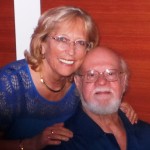 This month, Steve and I have enjoyed spending time with Maiwa’azi Dandaura Samu, who is staying with us for a few weeks after his PhD completion in International Conflict Analysis and Resolution at nearby Nova University. He was born and raised in the Central part of Nigeria in the region where Boko Haram keeps committing devastating, atrocities against the population, especially among the Christians – see August 2010 Bridge Report – http://www.bridgeinternational.org/2013/08/.
This month, Steve and I have enjoyed spending time with Maiwa’azi Dandaura Samu, who is staying with us for a few weeks after his PhD completion in International Conflict Analysis and Resolution at nearby Nova University. He was born and raised in the Central part of Nigeria in the region where Boko Haram keeps committing devastating, atrocities against the population, especially among the Christians – see August 2010 Bridge Report – http://www.bridgeinternational.org/2013/08/.
As a young man, Maiwa’azi had an encounter with Jesus Christ and served for several decades as an evangelist. A few years ago, in the wake of the rise of radical Islam, he felt the Lord call him into a broader ministry. He now assists as a Conflict and Security Consultant secular authorities in their effort to combat the threats Boko Haram, ISIS and similar groups pose.
In this Bridge issue he has made available to us one of his published academic papers which I find very informative and helpful in understanding in more depth the threats fundamentalist Islam poses to the world in general, and Christian believers specifically! I have been given the permission to adapt the article to our Bridge readers, thus references and footnotes are removed, It is posted in its entirety on the web, just click on the appropriate link on our website.
Please mark gifts to Maiwa’azi and his ministry Nigerian Workers.

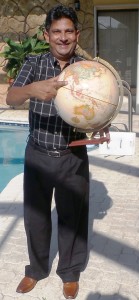 A couple of weeks ago, Steve and I had a delightful visit from one of our Bridge partners, Varughese Mathew, longtime missionary in the Andaman Islands, India. This was his third visit with us.
A couple of weeks ago, Steve and I had a delightful visit from one of our Bridge partners, Varughese Mathew, longtime missionary in the Andaman Islands, India. This was his third visit with us.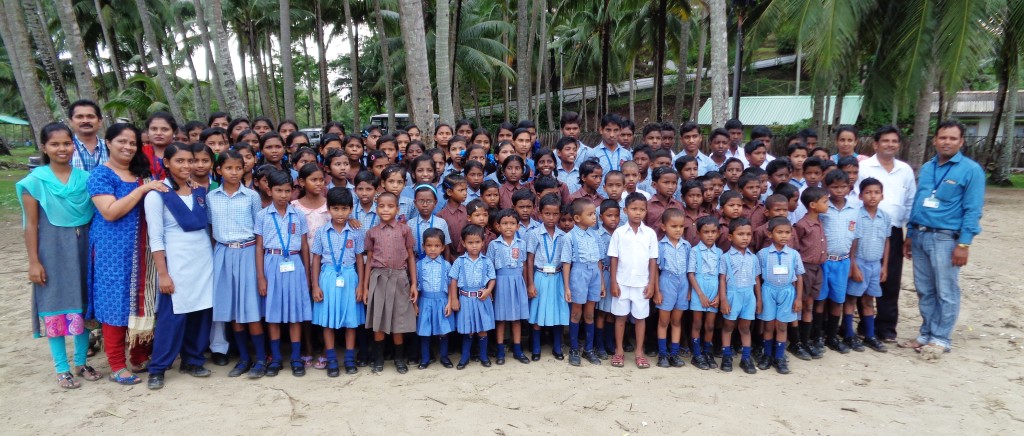
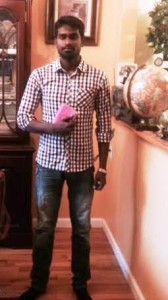 Praise the Lord – my name is v raja Sekhar. I was born into a Hindu family in Andaman Island. As a little boy I lost my parents. Somehow I was admitted into Calvary Children’s Home in the city of Port Blair. In the Children’s Home I grew up in a Christian atmosphere of love and care and came to faith in Jesus Christ. But as I grew older, I slowly walked away from God. I began drinking and taking drugs and exposing myself to a dangerous life.
Praise the Lord – my name is v raja Sekhar. I was born into a Hindu family in Andaman Island. As a little boy I lost my parents. Somehow I was admitted into Calvary Children’s Home in the city of Port Blair. In the Children’s Home I grew up in a Christian atmosphere of love and care and came to faith in Jesus Christ. But as I grew older, I slowly walked away from God. I began drinking and taking drugs and exposing myself to a dangerous life. 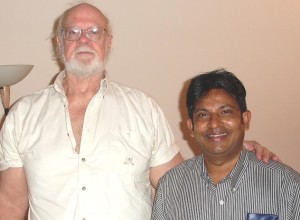 In 2010, Varughese visited our home, again, looking for the more long-term needs for his mission. An entrepreneurial businessman, as always, Steve gave generously from our own finances in support of our visiting missionary. And – as usual – Steve also helped Varughese define, and establish projects and micro-businesses from local resources which would make his family and the mission financially self-sustaining. Steve inquired, “What about goats?”
In 2010, Varughese visited our home, again, looking for the more long-term needs for his mission. An entrepreneurial businessman, as always, Steve gave generously from our own finances in support of our visiting missionary. And – as usual – Steve also helped Varughese define, and establish projects and micro-businesses from local resources which would make his family and the mission financially self-sustaining. Steve inquired, “What about goats?”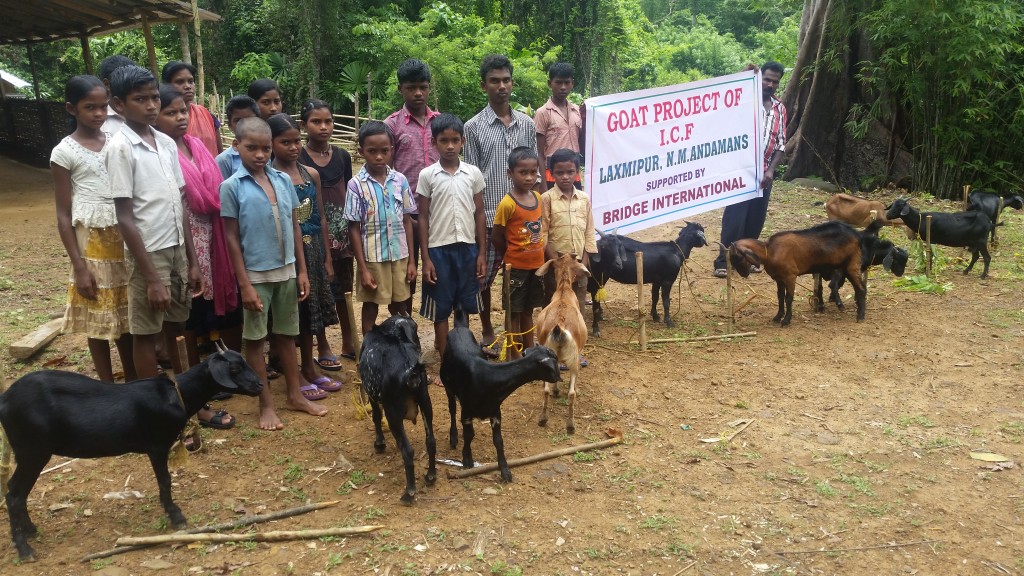 During Varughese’s most recent visit a couple of weeks ago, he asked,“Steve, do you remember the funds you gave which helped us buy a piece of land and you suggested we start a goat farm?” He then showed us on the map their northernmost mission station, located in a remote region 220 miles due north of Port Blair. There they have purchased 10 acres of land, located next to a vast national forest. The property has a small building which houses the two ICF missionary families, and on the land they have now 10 goats and a number of chickens which are being cared for by a young man raised in the Calvary Children’s Home, with plenty of water and forest for the goats to roam and graze. Each goat gives birth to 3-4 kids a year. “We would like to expand the flock to 160 goats, one for each of the children in our care, which would make us and ICF fully financially self-sustaining.”
During Varughese’s most recent visit a couple of weeks ago, he asked,“Steve, do you remember the funds you gave which helped us buy a piece of land and you suggested we start a goat farm?” He then showed us on the map their northernmost mission station, located in a remote region 220 miles due north of Port Blair. There they have purchased 10 acres of land, located next to a vast national forest. The property has a small building which houses the two ICF missionary families, and on the land they have now 10 goats and a number of chickens which are being cared for by a young man raised in the Calvary Children’s Home, with plenty of water and forest for the goats to roam and graze. Each goat gives birth to 3-4 kids a year. “We would like to expand the flock to 160 goats, one for each of the children in our care, which would make us and ICF fully financially self-sustaining.”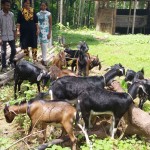
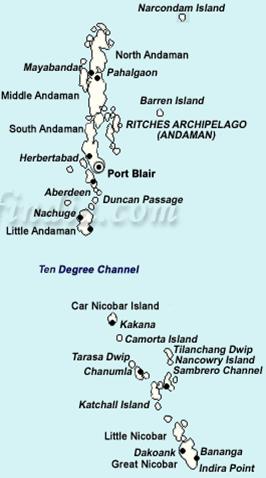 The Andaman & Nicobar Islands constitute the remotest part of the Indian Union. This archipelago spreads along 490 miles in the Indian Ocean – the southern tip of these islands located only 91 miles from Sumatra – consists of 572 islands with a population of app. 350,000 who live on 38 inhabited islands in 537 towns and villages.
The Andaman & Nicobar Islands constitute the remotest part of the Indian Union. This archipelago spreads along 490 miles in the Indian Ocean – the southern tip of these islands located only 91 miles from Sumatra – consists of 572 islands with a population of app. 350,000 who live on 38 inhabited islands in 537 towns and villages. 
